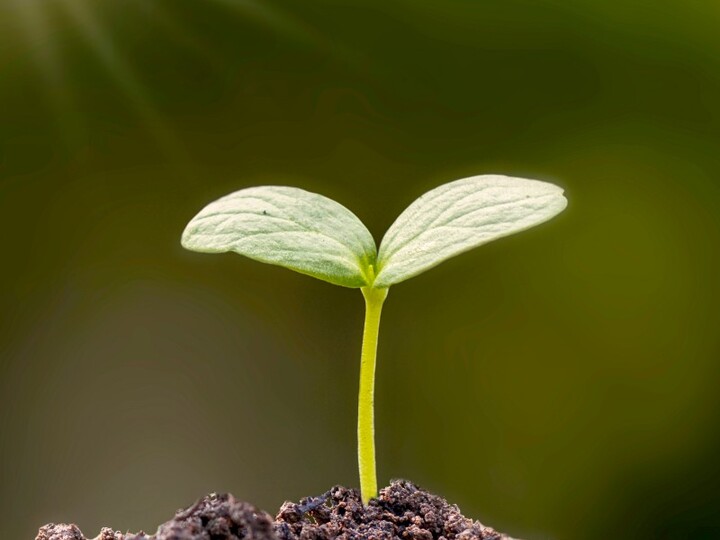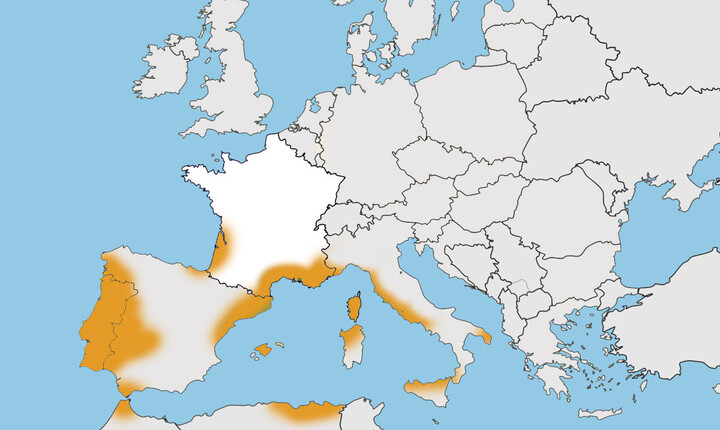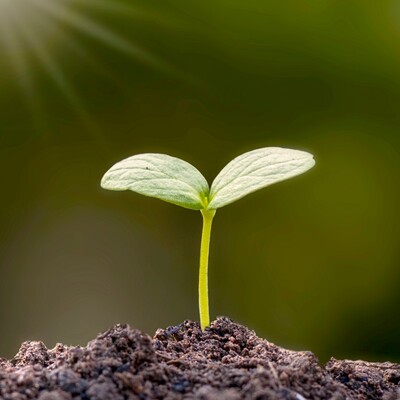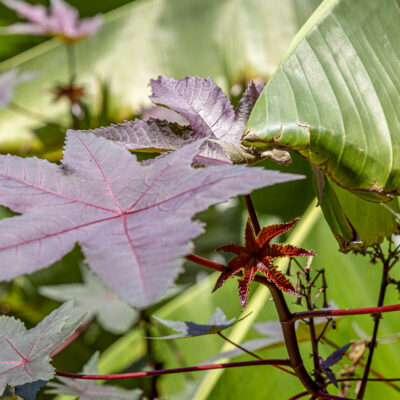Carob tree
Presentation
A substitute for cocoa!
The Carob tree, also referred to by its Latin name Ceratonia siliqua, is a majestic tree that originates from the Mediterranean basin. Both robust and elegant, this tree can also be admired at our four-star campsite Les Jardins de La Pascalinette ® in the Var area, French Riviera-Côte d’Azur. Reputed for its evergreen leaves and ability to thrive even in harsh environmental conditions, it often grows in the same areas as olive trees. However, it does not appreciate the cold, so is more commonly-found on the mild Côte d’Azur.
One of the most remarkable characteristics of the Carob tree is its edible beans, referred to as carobs, which have gained popularity worldwide due to their sweet flavour and dense texture. Rich in both fibres and antioxidants, these beans are often used as a coca substitute for the manufacture of chocolate and other sweet treats. What’s more, carobs are used in traditional medicine to treat a variety of ills, in particular digestive problems and respiratory issues.
Useful for protecting the environment
Just like our eco-friendly campsite, which constantly nurtures its environment, the Carob tree plays an important role in our Mediterranean ecosystems, where it acts as a soil protector and stabilizer. Its deep roots help prevent soil erosion and maintain the fertility of agricultural ground.
With its tasty beans, beautiful foliage and protective role in the environment, the Ceratonia siliqua Carob tree has a very special place in the campsite’s grounds. You can admire it in particular in the garden of our Coin des Copains ® Friends Corner (nr. 9 on the botanical footpath plan) and in the “Jardin de la Pinède” (nr. 10).
Identity
| Latin name : | Ceratonia siliqua |
|---|---|
| Family : | fabaceae |
| Genus : | ceratonia |
| Species : | siliqua |
| Color : | Green |
| Origin : | Mediterranean |
| Foliage : | Evergreen |
| Port : | Large tree |
| Height : | 7 m and more |
| Flowering : | August, September, October |
| Location : | jardin de la pinède 224 |
Did you know?
Interestingly, carob tree beans always weight exactly the same: 20 grams. As a result, they have even become a well-known measuring unit referred to as a carat in the jewellery world (1 carat = 1 carob bean).




